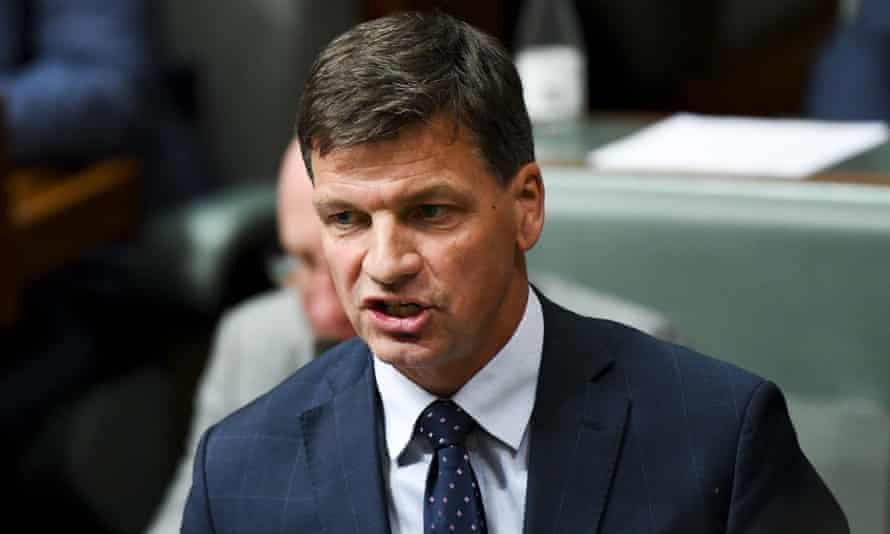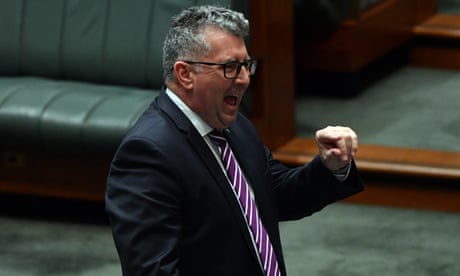Extract from The Guardian
Concetta Fierravanti-Wells says agency designed to foster renewables and any change made by regulation could be disallowed in Senate.

A Liberal-led committee has told energy minister Angus Taylor proposal to fund programs such as carbon capture storage through the renewable energy agency goes beyond the agency’s remit.
Last modified on Fri 18 Jun 2021 03.45 AEST
A Liberal-led committee has told the Morrison government its plan to change the Australian Renewable Energy Agency (Arena) so it can fund a broader range of technologies including some using fossil fuels could be illegal.
The standing committee for the scrutiny of delegated legislation has written to the energy minister, Angus Taylor, expressing concern that his proposal to change Arena’s remit without legislation goes beyond what the parliament envisaged when it passed laws to create the agency.
Taylor is attempting to use regulation to allow Arena to fund programs under the government’s technology investment roadmap including carbon capture and storage and “clean” hydrogen made using gas. Projects involving heavy transport, low-emissions cars, industrial energy efficiency and micro-grid pilot programs could also be funded.
The change is opposed by Labor and the Greens. They backed an unsuccessful motion in the lower house this week to block the move, arguing it could be illegal and would give Taylor the power to declare which technologies qualify as low emissions and could receive Arena support.

In a letter to Taylor on Thursday, the Senate committee’s chair, Concetta Fierravanti-Wells, noted the objective of the laws governing Arena was “to improve the competitiveness and supply of renewable energy in Australia”. The Liberal senator said there was nothing in the bill’s explanatory memorandum “to suggest that it was contemplated that the Arena would have the ability to foster anything other than renewable energy technologies”.
“The committee is concerned that the [change] deals with the significant matter of expanding the jurisdiction of the Arena from investing in renewable energy technologies to programs relating to energy efficiency and low-emissions technology,” Fierravanti-Wells wrote.
The committee believed the changes were “more appropriate for parliamentary enactment” – in other words, they should be made through legislation, she concluded.
The letter asked Taylor to explain why he believed it was necessary to use regulation, or “delegated legislation”, rather than a bill before parliament, to extend Arena’s role. It warned the committee could move a motion to disallow the change in the Senate if Taylor did not respond by 1 July.
It is unclear if the government would be able to make the changes if forced to use legislation rather than regulation. With Labor and the Greens opposed, a bill would need the support of at least three of the other five crossbench senators to pass.
Liberal Senator Zed Seselja, representing Taylor, told a Senate estimates hearing last month the government had “strong legal advice” that the changes to Arena could be made through regulation.
Industry group the Smart Energy Council said it planned to launch legal action against the change if it was not disallowed in the Senate.
Its chief executive, John Grimes, said the government had tried on multiple occasions to abolish or reduce the size of Arena, which was introduced by the Gillard Labor government under a deal with the Greens and independent MPs. He said the council represented a “formidable constituency” of 1,000 corporate members.
“We will fight all the way to oppose any changes,” Grimes said.
Labor’s climate spokesperson, Chris Bowen, and the Greens leader, Adam Bandt, told parliament this week they believed the change could be illegal.
Bowen said “the giveaway” was in the agency’s name. “The ‘r’ in Arena stands for renewable. It’s in the act, as the objective of the act, and it’s a pretty clear principle under other legislation that a regulation cannot conflict with the legislated act,” he said.
Bowen said Arena already had a broad remit, having supported projects in solar, bio-energy, geothermal, grid integration, hydrogen, ocean-related energy and batteries.
Bandt said the regulatory change “clearly opens the government up to being sued, wasting even more public money”.
“This government is willing to break the law to give public money to gas corporations that pay no tax,” he said.
A spokesperson for Taylor defended the proposed change, saying it would bring “a portfolio of technologies to commercial parity with higher emitting alternatives so we can reduce emissions across every sector of the economy, while protecting industries and jobs, and creating new ones”.
They said Labor had voted against $192m in new funding for Arena and the creation of 1,400 jobs. “Labor is out of touch with business and industry and is more interested in playing politics than getting on with commonsense initiatives,” the spokesperson said.
Officials told Senate estimates the government had drafted legislation to change Arena, but the minister opted to use regulation instead. Bowen told parliament he believed the government may not have introduced the drafted bill because it was concerned Coalition MPs would attempt to amend it to allow Arena to fund coal projects – as the Nationals MP Barnaby Joyce did with legislation to change the Clean Energy Finance Corporation in February.
That bill was subsequently dropped from the government’s legislative program.

No comments:
Post a Comment